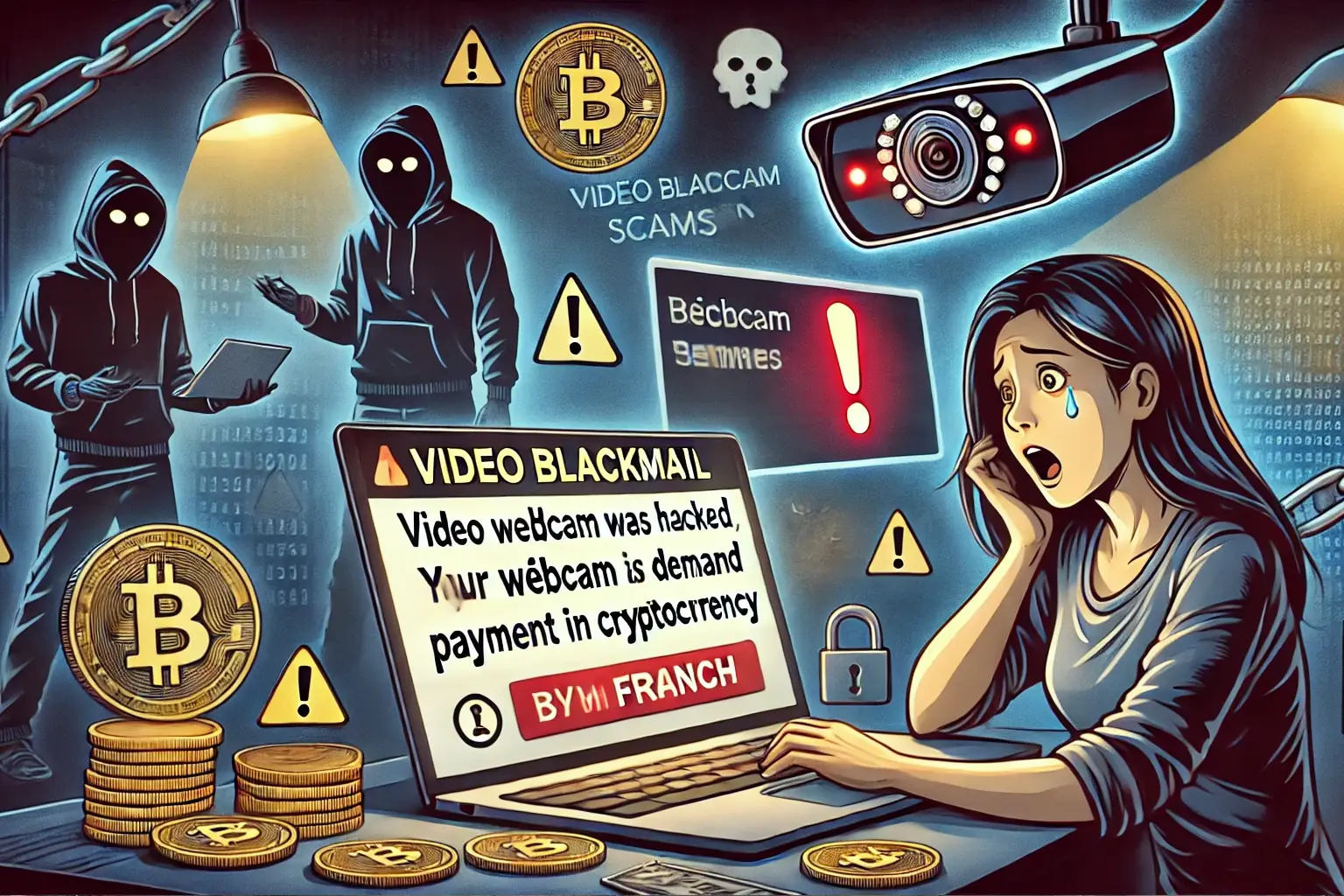Posted by René Ronse
Alert : Video blackmail scam “sextortion”
Updated on 8 November 2025.
 Disturbing emails claim your computer has been hacked and that “spyware” has recorded compromising videos. The scammers then demand payment, often in cryptocurrency, threatening to share the footage with your contacts. In reality, it’s a baseless blackmail attempt.
Disturbing emails claim your computer has been hacked and that “spyware” has recorded compromising videos. The scammers then demand payment, often in cryptocurrency, threatening to share the footage with your contacts. In reality, it’s a baseless blackmail attempt.
Fake Spyware and Video Blackmail Scam
These messages rely on fear and shame to push victims into paying. The sender often forges the email address to make it look like the message comes from your own account.
How it works
The scammer claims to have installed malware after your visit to an adult site or through a supposed webcam hack. They allege to possess an intimate video or compromising evidence, sometimes including a blurred image or fake video clip. In truth, no hacking has occurred — the entire scheme is psychological manipulation.
Red flags: spoofed email address, threatening tone, demand for Bitcoin payment, no actual proof provided.
Some tips:
- 🚫 Never pay the requested ransom — this blackmail has no real basis.
- 🔑 Change your passwords immediately if you have any doubts.
- 📧 Report the message to Action Fraud or reportfraud.ftc.gov.
- 🔍 Enable two-factor authentication on your online accounts.
- 📢 Warn your friends and family to prevent panic and limit the spread of such scams.
Conclusion
These emails exploit fear to extort money. No “spyware” is actually installed. Ignore them, report them, and secure your accounts.
For more information:
Frauds, Scams and How to Stay Safe!
Written by : René Ronse
Methodology : Our alert articles are based on regular monitoring of national reporting platforms, feedback from victims, and statements issued by relevant authorities.
About the author : René Ronse, manager of ArnaqueOuFiable.com. Expert in consumer cybersecurity, specialist in detecting online fraud, product transparency, and digital compliance. He has over 20 years of experience analyzing hidden subscription mechanisms, unreadable terms and conditions, aggressive sales tactics, and deceptive commercial practices on the web.
Sources : ncsc.gov.uk | troopers.ny.gov | malwarebytes.com
Last updated : 8 November 2025.
This article is also available in : Français - Deutsch - Español - Italiano - Nederlands - Português


 Disturbing emails claim your computer has been hacked and that “spyware” has recorded compromising videos. The scammers then demand payment, often in cryptocurrency, threatening to share the footage with your contacts. In reality, it’s a baseless blackmail attempt.
Disturbing emails claim your computer has been hacked and that “spyware” has recorded compromising videos. The scammers then demand payment, often in cryptocurrency, threatening to share the footage with your contacts. In reality, it’s a baseless blackmail attempt.
Consumer Reviews and Testimonials